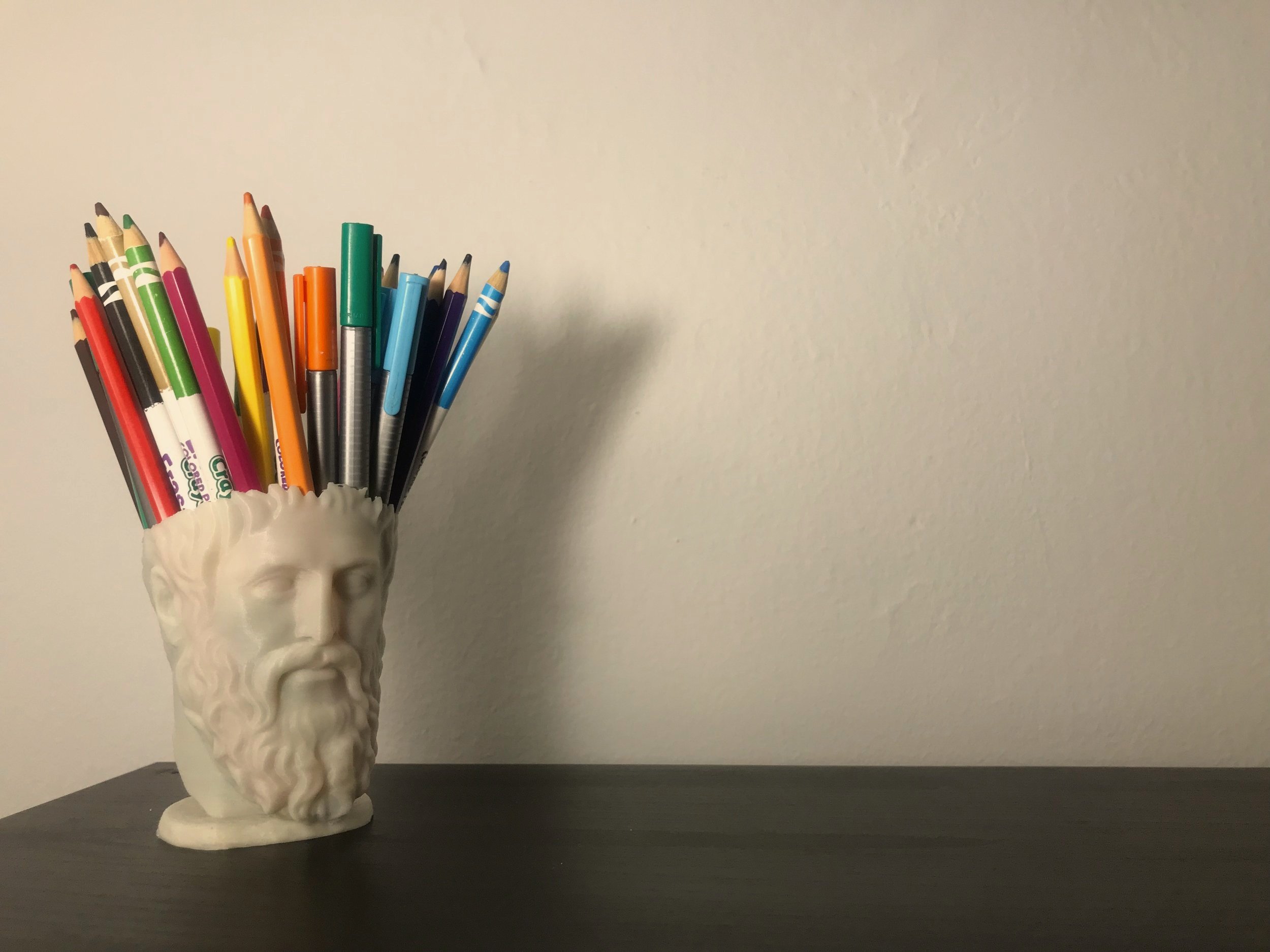How does human nature shape human virtue? My research project addresses this question at the intersection of ancient proposals and current concerns in ethics.
The goal of my research is to understand the ways in which our imperfect human nature limits how virtuous we can become and what we can do about it. To this end, I primarily focus on Plato’s Laws since, as I argue in my 2022 dissertation Virtue and Change in Plato’s Laws, Plato there develops an ethical and political theory for easily corruptible human beings. Moreover, I believe that some of the strategies that Plato develops to deal with human corruptibility can speak to contemporary problems in ethics. In my reading, the Laws envisages a unique way in which idealized models can guide human action.
I develop this idea in my book project, Plato’s Ideal and Non-Ideal Theory. I argue that, in the Laws, Plato develops a distinctive ethical and political proposal that recognizes both the normative value of idealized models and the need to operate within human constraints.
I have written the following articles on these topics:
Demotic virtues in Plato’s Laws (Apeiron 57, Issue 2, 2024)
I argue that, in Plato’s Laws, demotic virtues (δημόσιαι ἀρεταί, 968a2) are the virtues that non-divine beings can attain. I consider two related questions: what demotic virtues are and how they relate to divine virtue. According to my interpretation, demotic virtues are an attainable—but unreliable—type of virtue that non-divine beings can improve through knowledge. These virtues are not perfect; only divine beings possess perfect virtue. However, this does not mean that perfect virtue plays no part in the ethical lives of non-divine beings. It serves as a “regulative ideal” for everyone who is not a god.
Painting the laws in Plato’s Laws (under review)
In this article, I argue that neither laws, nor humans, nor divine beings are the single source of political normativity in Plato’s Laws. The city’s order depends on a tripartite and dynamic system formed by laws, humans, and divine beings. In this system, divine beings are the only non-derivative source of political normativity. However, divine beings do not impose laws by themselves on humans. Legislators use divine beings as models for their laws within the constraints of what is humanly possible. Plato finds a creative way of synthesizing this tripartite and dynamic system into a single metaphor—the painting metaphor.
Human Beings as Dependent Self-Movers in Plato’s Laws (complete draft)
In this paper, I argue that, in the context of the Laws, human beings are “Dependent Self-Movers.” We participate both in the “Self/Other Movement” that characterizes souls and in the “Other Movement” associated with bodies. Given that Other Movement is described as second-best and dependent, humans are partially dependent beings. This metaphysical aspect, I argue, has important ethical implications for humans: we are unable to attain perfect and stable virtue.
Plato’s metaphors as toy, scale, and idealized models (complete draft)
In addition, I enjoy working on interdisciplinary projects.
